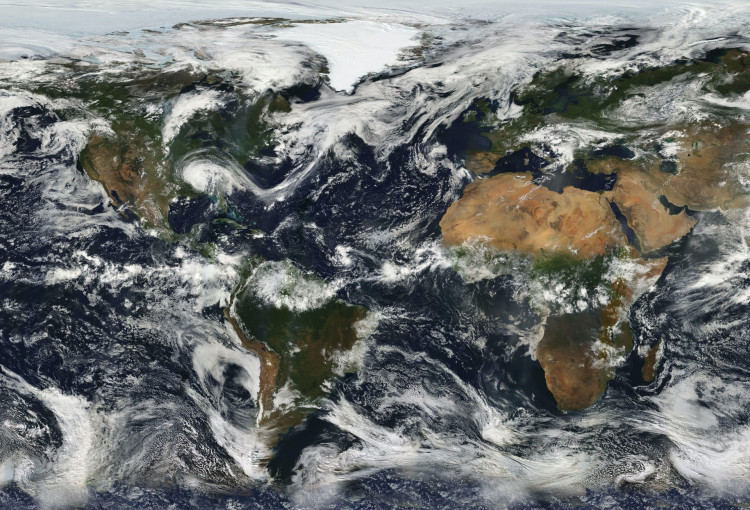The first continents on Earth, known as cratons, formed from the ocean between 3.3 billion and 3.2 billion years ago, a new study has claimed.
This changes prior estimates of when the cratons originally emerged from the water, which suggested that large-scale craton emergence occurred about 2.5 billion years ago, according to numerous studies.
That's because scientists have discovered sedimentary rocks from that time period, which are made up of broken-up parts of other rocks that have been weathered and eroded. Only after land broke through the surface of the early Earth's oceans could sedimentary rocks form.
However, while geologists recognized that at least some of the cratons had to have been exposed more than 3 billion years ago, the precise date and scope of their emergence remained unknown.
The authors of the study believe that whole cratons, not just little patches of land, erupted from the oceans 3.3 billion years ago, despite the fact that the planet lacked the "modern-style plate tectonics" required to move those floating chunks of crust upward at the time.
The authors traveled to the Singhbhum Craton in eastern India for the new study, which was published Nov. 8 in the journal Proceedings of the National Academy of Sciences (PNAS).
First author Priyadarshi Chowdhury, a postdoctoral research fellow at Monash University's School of Earth, Atmosphere and Environment in Melbourne, Australia, said that "pockets" of ancient sedimentary rocks had previously been discovered at the craton, and the team wanted to determine their exact ages and the nature of how they formed.
The Singhbhum craton, according to Chowdhury, may have evolved via a build-up of lava over time, resulting in a crust that "becomes so thick that it just floats up above the water... like an iceberg floating on water."
From the Singhbhum sediments, the researchers collected tiny grains of a mineral known as zircon. The team was able to estimate the age of the rocks by firing lasers at the zircon and then analyzing the relative amounts of components produced.
The formation of early continents would have also sucked carbon dioxide from the atmosphere, resulting in localised pockets of cold climate and the production of glaciers, Chowdhury said.
"This was the first step towards making the earth more habitable."





